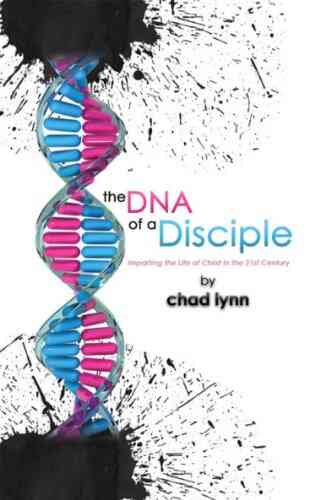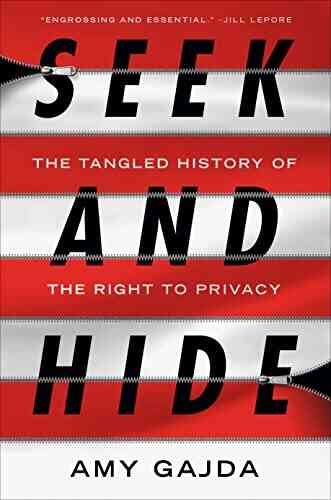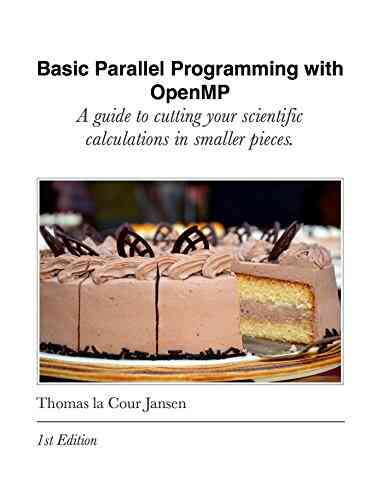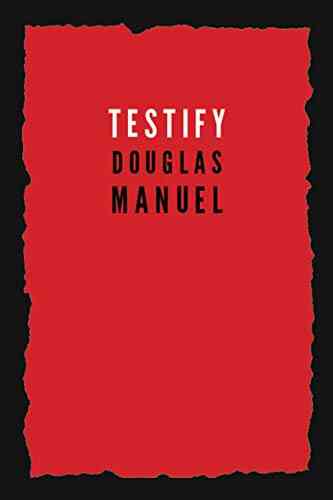The Tangled History Of The Right To Privacy: Protecting Our Digital Lives in the Modern Age

In today's digital age, our lives are intertwined with technology in ways unimaginable just a few decades ago. From constantly connected smartphones to smart home devices that monitor our every move, the importance of privacy has become a hot topic of discussion. But the right to privacy is not a modern concept; its roots can be traced back centuries.
The idea of privacy as a fundamental right can be seen in ancient civilizations. In ancient Rome, for instance, the Latin phrase "domus sua cuique est tutissimum refugium" translates to "a man's home is his safest refuge." This belief emphasized the importance of personal space and the right to be free from unwanted intrusion.
Jumping forward a few centuries, the concept of privacy became intertwined with the rise of print culture and the press. In the 19th century, the of photography brought about new anxieties about privacy. People were concerned that their images could be captured without consent and shared widely. This fear led to the development of privacy laws that prohibited the unauthorized use of someone's likeness.
4.8 out of 5
| Language | : | English |
| File size | : | 2311 KB |
| Text-to-Speech | : | Enabled |
| Screen Reader | : | Supported |
| Enhanced typesetting | : | Enabled |
| Word Wise | : | Enabled |
| Print length | : | 399 pages |
But it was not until the 20th century that the right to privacy truly started to take shape. In the landmark case of Olmstead v. United States (1928),the U.S. Supreme Court recognized that the Fourth Amendment protects individuals from warrantless wiretapping, marking an important step towards safeguarding privacy in the digital era.
However, the advent of the internet and the rapid advancement of technology in the 21st century has presented new challenges to the right to privacy. With the rise of social media platforms, online shopping, and targeted advertising, our personal information is constantly being collected and analyzed.
One key turning point in the history of privacy was the revelation of government surveillance programs by whistleblower Edward Snowden in 2013. Snowden's leaked documents exposed the extent of mass surveillance conducted by government agencies, raising concerns about the erosion of privacy rights in the name of national security.
The legal landscape surrounding privacy has also evolved in response to the changing times. In 2018, the European Union implemented the General Data Protection Regulation (GDPR),which provides individuals with greater control over their personal data and imposes strict penalties on organizations that fail to comply with data protection rules.
In the United States, however, privacy laws are still catching up to the digital age. Currently, there is no comprehensive federal privacy law, and regulations vary from state to state. The California Consumer Privacy Act (CCPA),passed in 2018, is one of the most significant state-level efforts to protect privacy, but it has its limitations.
As technology continues to advance at an unprecedented pace, the right to privacy faces ongoing challenges. The proliferation of smart devices and the Internet of Things (IoT) means that our homes and personal spaces are constantly connected to the online world. This constant connectivity raises concerns about data security, as hackers and malicious actors can potentially access our most personal information.
Furthermore, the rise of artificial intelligence (AI) and machine learning algorithms poses new risks to privacy. These technologies can analyze vast amounts of data, including our online activities, to make predictions and recommendations. While these advancements have the potential to improve our lives, they also raise questions about who has access to our data and how it is being used.
So, what can we do to protect our privacy in the digital age? Education and awareness are key. Understanding the risks and implications of sharing personal information online is essential. Taking steps such as using strong unique passwords, enabling two-factor authentication, and regularly updating privacy settings can help mitigate some of the risks.
Furthermore, advocating for stronger privacy laws and regulations that keep pace with technological advancements is crucial. The fight for privacy is not just an individual battle but a collective effort to protect our rights in the digital space.
The tangled history of the right to privacy reminds us of the ongoing struggle to strike a balance between the benefits of technological advancements and the preservation of our fundamental rights. As we navigate the complexities of the digital age, it is essential to stay informed, remain vigilant, and actively participate in shaping the future of privacy.
Alt attribute: The tangled history of the right to privacy
4.8 out of 5
| Language | : | English |
| File size | : | 2311 KB |
| Text-to-Speech | : | Enabled |
| Screen Reader | : | Supported |
| Enhanced typesetting | : | Enabled |
| Word Wise | : | Enabled |
| Print length | : | 399 pages |
“Gajda’s chronicle reveals an enduring tension between principles of free speech and respect for individuals’ private lives. …just the sort of road map we could use right now.”—The Atlantic
“Wry and fascinating…Gajda is a nimble storyteller [and] an insightful guide to a rich and textured history that gets easily caricatured, especially when a culture war is raging.”—The New York Times
An urgent book for today's privacy wars: the surprising history of the fitful development of the right to privacy—and its battle against the public’s right to know.
The battle between an individual’s right to privacy and the public’s right to know has been fought for centuries. The founders demanded privacy for all the wrong press-quashing reasons. Supreme Court justice Louis Brandeis famously promoted First Amendment freedoms but argued strongly for privacy too; and presidents from Thomas Jefferson through Donald Trump confidently hid behind privacy despite intense public interest in their lives.
Today privacy seems simultaneously under siege and surging. And that’s doubly dangerous, as legal expert Amy Gajda argues. Too little privacy can mean extraordinary profits and power for people who deal in and publish soul-crushing secrets. Too much means the famous and infamous can cloak themselves in secrecy. Seek and Hide carries us from the very start, when privacy concepts first entered American law and society, to now, when the law allows a Silicon Valley titan to destroy a media site like Gawker out of spite. Muckraker Upton Sinclair, like Nellie Bly before him, pushed the envelope of privacy and propriety and then became a privacy advocate when journalists used the same techniques against him. By the early 2000s we were on our way to today’s full-blown crisis in the digital age, worrying that smartphones, webcams, basement publishers, and the forever internet had erased the right to privacy completely.
Should everyone have privacy in their personal lives? Can privacy exist in a public place? Is there a right to be forgotten even in the United States? Is it too late to get control of data privacy? This fascinating and necessary book shows us how the answers may not be what you expect, or hope, how technology makes these issues more complicated than ever before, and how we can learn from the mistakes of the past as we try to balance privacy and First Amendment freedoms in a modern age.
Do you want to contribute by writing guest posts on this blog?
Please contact us and send us a resume of previous articles that you have written.




















Light bulbAdvertise smarter! Our strategic ad space ensures maximum exposure. Reserve your spot today!

 Gabriel BlairCollection Of Texas Poetry Prose - A Literary Journey Through the Lone Star...
Gabriel BlairCollection Of Texas Poetry Prose - A Literary Journey Through the Lone Star... Frank MitchellFollow ·18k
Frank MitchellFollow ·18k Don ColemanFollow ·7.4k
Don ColemanFollow ·7.4k VoltaireFollow ·9.9k
VoltaireFollow ·9.9k Yasunari KawabataFollow ·16.4k
Yasunari KawabataFollow ·16.4k Terence NelsonFollow ·19.4k
Terence NelsonFollow ·19.4k Dennis HayesFollow ·17.2k
Dennis HayesFollow ·17.2k Miguel de CervantesFollow ·5.2k
Miguel de CervantesFollow ·5.2k Caleb LongFollow ·6.2k
Caleb LongFollow ·6.2k

 Dwayne Mitchell
Dwayne MitchellSaving The Maldives: The Floating Island
The Maldives, known for...

 Ethan Mitchell
Ethan MitchellManaging The Production Hour: Mastering Efficiency and...
As businesses strive to meet growing demands...

 Virginia Woolf
Virginia WoolfThe Food Lab: Better Home Cooking Through Science
Have you ever wondered why some...

 Jeff Foster
Jeff FosterThe Darling Songbirds: The Songbirds of Darling Bay
When it comes to enchanting melodies and...

 Eli Blair
Eli BlairDeath And New Life In Pandemic
The COVID-19 pandemic has brought about...

 Dave Simmons
Dave SimmonsThe Unstoppable Nathan Run: A Thrilling Journey Into John...
When it comes to gripping thriller novels,...

 Amir Simmons
Amir SimmonsDistant Horizon Backyard Starship: Exploring the Cosmos...
The mysteries of the universe...

 Simon Mitchell
Simon MitchellUnveiling the Secrets: The DNA of a Disciple - A...
Do you ever wonder what it takes to become a...

 Samuel Taylor Coleridge
Samuel Taylor ColeridgeThe Epic Tale of Snake River Slaughter: Matt Jensen, The...
The Snake River, winding through the...

 Ray Blair
Ray BlairThe Ultimate Covid Alphabet For Teachers: The Key to a...
With the Covid-19 pandemic still ongoing,...

 Gage Hayes
Gage HayesFor The Sake Of Family: Why Prioritizing Our Loved Ones...
Family is the backbone of...
4.8 out of 5
| Language | : | English |
| File size | : | 2311 KB |
| Text-to-Speech | : | Enabled |
| Screen Reader | : | Supported |
| Enhanced typesetting | : | Enabled |
| Word Wise | : | Enabled |
| Print length | : | 399 pages |






















